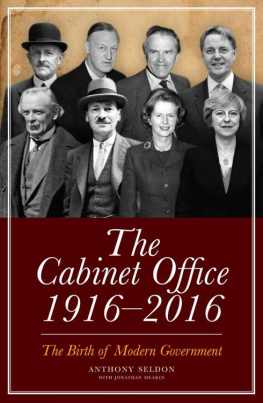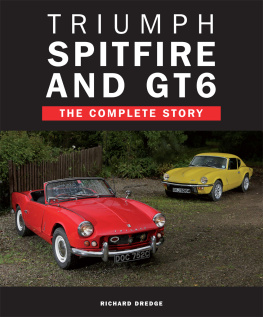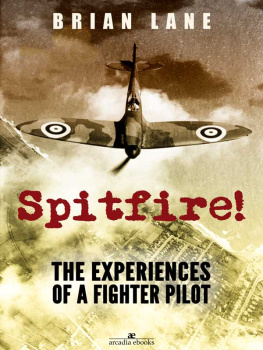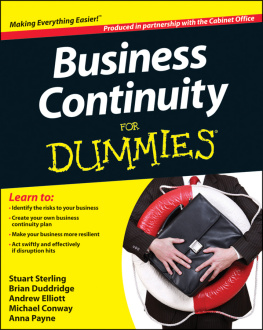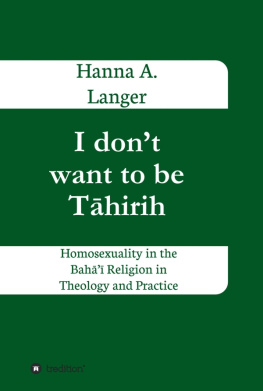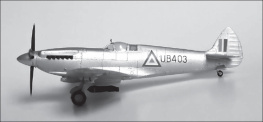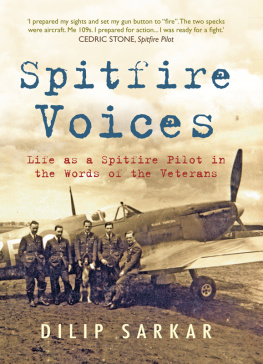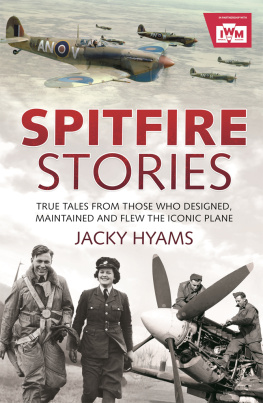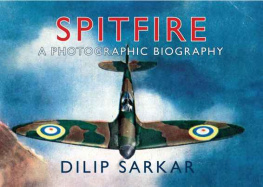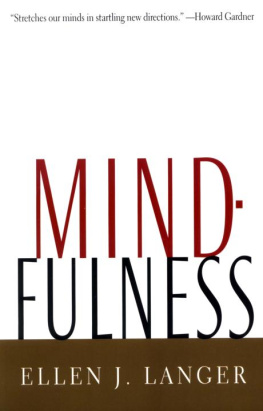First published in Great Britain in 2016 by
Pen & Sword Aviation
an imprint of
Pen & Sword Books Ltd
47 Church Street
Barnsley
South Yorkshire
S70 2AS
Copyright J. F. Langer CBE AFC DL 2016
ISBN: 978 1 47386 004 9
PDF ISBN: 978 1 47386 007 0
EPUB ISBN: 978 1 47386 006 3
PRC ISBN: 978 1 47386 005 6
The right of J. F. Langer CBE AFC DL to be identified as the Author of this Work has been asserted by him in accordance with the Copyright, Designs and Patents Act 1988.
A CIP catalogue record for this book is available from the British Library
All rights reserved. No part of this book may be reproduced or transmitted in any form or by any means, electronic or mechanical including photocopying, recording or by any information storage and retrieval system, without permission from the Publisher in writing.
Typeset in Ehrhardt by
Mac Style Ltd, Bridlington, East Yorkshire
Printed and bound in the UK by CPI Group (UK) Ltd,
Croydon, CRO 4YY
Pen & Sword Books Ltd incorporates the imprints of Pen & Sword Archaeology, Atlas, Aviation, Battleground, Discovery, Family History, History, Maritime, Military, Naval, Politics, Railways, Select, Transport, True Crime, and Fiction, Frontline Books, Leo Cooper, Praetorian Press, Seaforth Publishing and Wharncliffe.
For a complete list of Pen & Sword titles please contact
PEN & SWORD BOOKS LIMITED
47 Church Street, Barnsley, South Yorkshire, S70 2AS, England
E-mail:
Website: www.pen-and-sword.co.uk
Chapter 1
Schooldays
I cannot remember much of my early childhood although a few incidents come readily to mind. For example, one day, when I was about three or four, my elder sister Jean and I were playing in the garden when we heard a screech of brakes and a yelp. Our nanny rushed out and took us into the house where our mother told us later that the familys much loved Scottish terrier had been run over and killed and was now buried in the back garden under an apple tree.
I also remember vividly that, when I was about six or seven, our mother would take Jean and me to the garden parties held in the grounds of the Putney Home for Incurables (a horrible name, still engraved on the building) which was on the opposite side of the road when we lived in West Hill. These were fundraising events and the ladies would dress up as if for Ascot with large hats, elegant dresses and pretty parasols. But what sticks in my mind was the horrific state of most of the inmates. Many of them were blind as a result of gas attacks, most of them had had limbs amputated and a few had neither arms nor legs. But the worst cases were those who had part of their faces blown away and were left with gaping holes. After these visits, and I can recall at least three or four, I had nightmares for several days.
The Langer family: Mother with Jean, baby Elizabeth and the author, John Francis.
* * *
My first school was of the nursery variety run by the Putney High School for Girls. I cannot recall any formal lessons: we spent most of the time doing clever things with plasticine or painting pictures of our houses, our mummies or our pets to order. The school was very keen on eurythmics and free expression and whenever the weather allowed we were made to prance around the garden and to dance like trees or elephants or old men. I often wondered if I looked as foolish as I felt. It was all very Joyce Grenfell! My second school was the Convent of the Sacred Heart where Jean was already a pupil. The Convent took boys from five to seven years old but I stayed until I was nine. It was there that I was introduced to the three Rs. It was also at the Convent that I had my first fifteen minutes of fame.
The Langer family home, 12 St Simons Avenue, Putney, London, SW15.
One day the Reverend Mother Superior came to early morning prayers to address the school. After stressing the importance of religion in education she started asking questions about their faith to the assembled pupils. Hands shot up and satisfactory answers were given until she asked How much bread do we receive at Holy Communion? Some of the girls hazarded answers in ounces and it was clear that the Reverend Mother was getting agitated. Thinking laterally I put up my hand and said We dont get any bread . Before I could go on she beckoned me towards her, and gave me a hug and enveloped me in her habit which smelt strongly of mothballs and incense. Then addressing the audience she said Of course we do not receive any bread because during the Mass it was turned into the Body of Christ and I am surprised that it has taken someone as young as John to see that truth. She then gave me a kiss on the forehead and swept out. If I blushed it was not because of the kiss in front of all those girls but because I was going on to say that the Communion wafer was not bread but biscuit.
From the Convent I went on to Donhead Lodge which was the preparatory school for Wimbledon College, the grounds of which were on the opposite side of Edge Hill. It had been a large private house so it had a homely feel about it which made it an excellent place in which to gently introduce us youngsters to the rigours of public school life. It was there that a few of us first met the dreaded ferrula, a thick piece of leather shaped something like the sole of a shoe. It was administered sharply to the palms of ones hands and hurt like hell. I remember clearly that I was awarded three of the best for persistently confusing Britain with Briton and vice-versa. I never ever got that wrong again! Our form master was Father Millar, a grey-haired, tall, avuncular man who was much respected and well liked, except when he reluctantly decided that a little painful correction was necessary.
In 1936, when I was eleven, my class, all ten of us, moved across the road to Wimbledon College which had been founded in the mid-nineteenth century with the purpose of preparing Catholic boys for service as officers in the Armed Forces. Many served in the Crimea, the Boer War and the First World War, and the schools Roll of Honour was quite impressive. The College was run by the Society of Jesus, often referred to as the Catholic mafia. Founded in Rome in the sixteenth century but with houses and colleges around the world, the SJs were one of the strictest, most learned and influential of all the religious orders. Wimbledon College was a public day school, the associated boarding school being Beaumont College near Windsor.
The school was well endowed with sports facilities in that there were three tennis courts, a large gymnasium, a heated indoor swimming pool, two cricket pitches with practice nets, all in the grounds, as well as a separate sports field and pavilion at Raynes Park where there were three rugby pitches. The assembly hall, which was also the refectory, was quite grandiose, the chapel was beautiful, the science laboratories were well equipped but the classrooms were very spartan. The worst aspect of the school was the toilets, all with the original mid-Victorian plumbing which really deserved the schoolboy name of the bogs.
Father Murrays class, Wimbledon College; the author is first left, back row.





